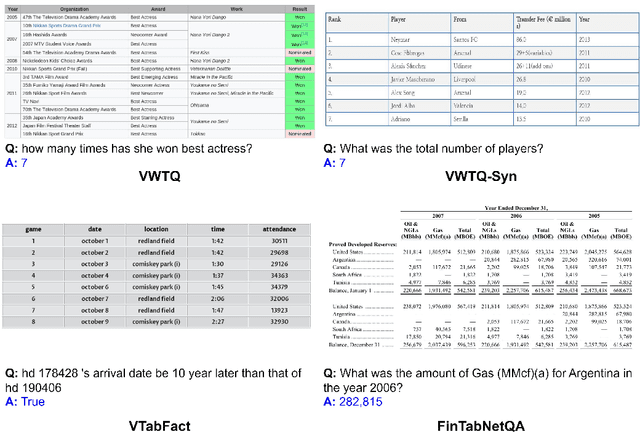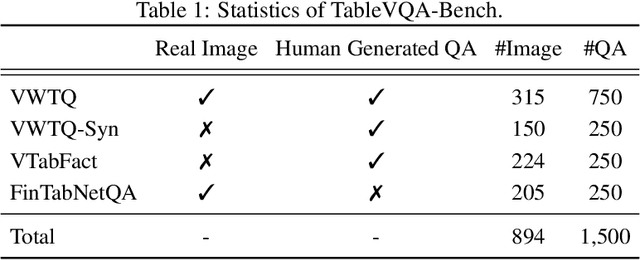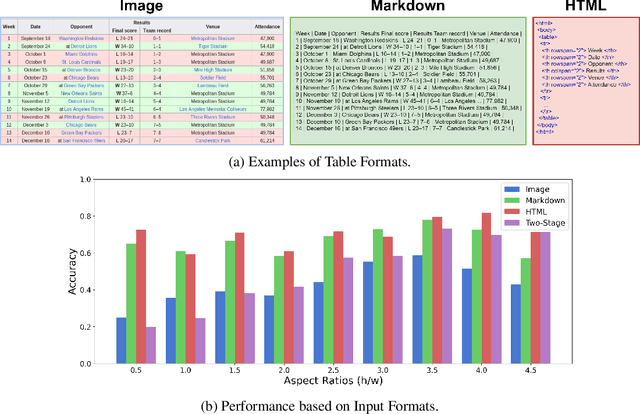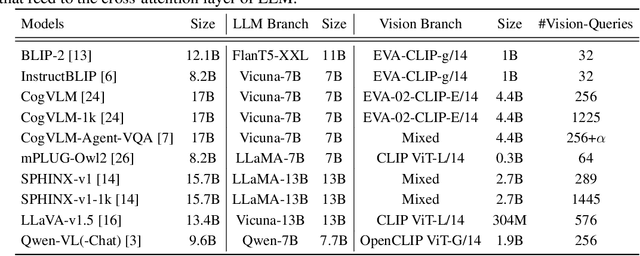TableVQA-Bench: A Visual Question Answering Benchmark on Multiple Table Domains
Paper and Code
Apr 30, 2024



In this paper, we establish a benchmark for table visual question answering, referred to as the TableVQA-Bench, derived from pre-existing table question-answering (QA) and table structure recognition datasets. It is important to note that existing datasets have not incorporated images or QA pairs, which are two crucial components of TableVQA. As such, the primary objective of this paper is to obtain these necessary components. Specifically, images are sourced either through the application of a \textit{stylesheet} or by employing the proposed table rendering system. QA pairs are generated by exploiting the large language model (LLM) where the input is a text-formatted table. Ultimately, the completed TableVQA-Bench comprises 1,500 QA pairs. We comprehensively compare the performance of various multi-modal large language models (MLLMs) on TableVQA-Bench. GPT-4V achieves the highest accuracy among commercial and open-sourced MLLMs from our experiments. Moreover, we discover that the number of vision queries plays a significant role in TableVQA performance. To further analyze the capabilities of MLLMs in comparison to their LLM backbones, we investigate by presenting image-formatted tables to MLLMs and text-formatted tables to LLMs, respectively. Our findings suggest that processing visual inputs is more challenging than text inputs, as evidenced by the lower performance of MLLMs, despite generally requiring higher computational costs than LLMs. The proposed TableVQA-Bench and evaluation codes are available at \href{https://github.com/naver-ai/tablevqabench}{https://github.com/naver-ai/tablevqabench}.
 Add to Chrome
Add to Chrome Add to Firefox
Add to Firefox Add to Edge
Add to Edge